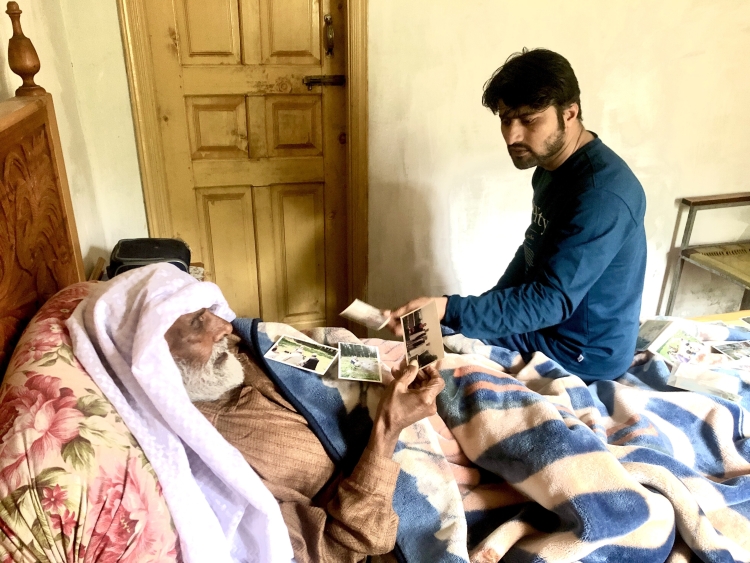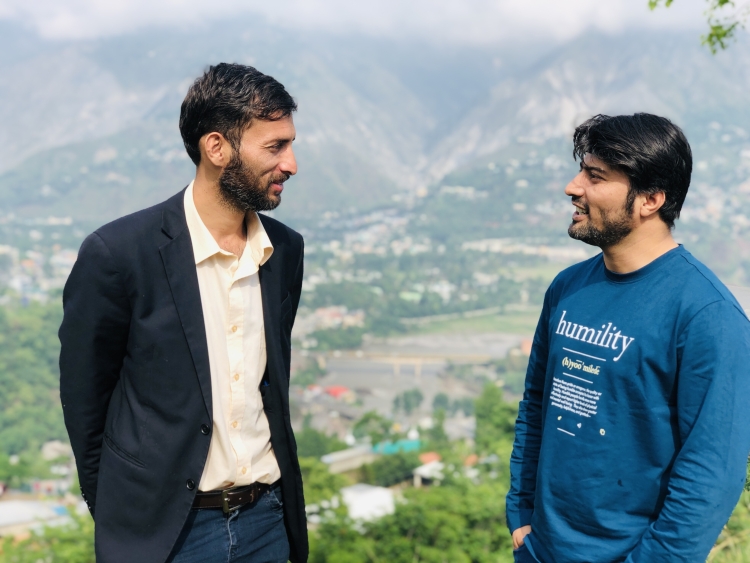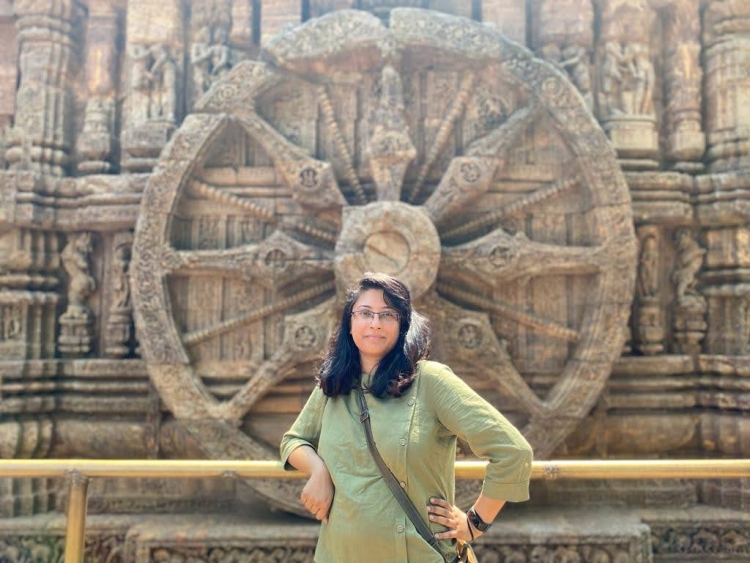India and Pakistan have a history of more than 75 years of conflict over Kashmir, a region split between the two nations. This clash often places Kashmiris, who lack autonomy, in the crossfire.
“This India-Pakistan issue, it just seeps into you,” said Indian journalist Puja Bhattacharjee, who is based in Kolkata.
Last year, Bhattacharjee collaborated with Pakistani journalist Umar Bacha to publish “Caught in the India Pakistan Crossfire,” an investigation backed by ICFJ’s Stemming the Tide of Intolerance program. The article won the 2023 Hostwriter Story Prize for its emotional exploration of families and marriages divided by borders.
“Reporting about the India-Pakistan conflict transparently, accurately is not easy,” said Umar, who’s based in Northern Pakistan. “But I think this issue should be reported at all levels.”
Recently, this conflict experienced by Kashmiris has been brought back into focus. In an early October vote in Indian-administered Kashmir, the National Conference party — which advocates for a restoration of Kashmiri statehood — won the majority of seats in the region’s Legislative Assembly. In early November, the legislature passed a resolution calling for restoration of its semi-autonomy.
The election was the first of its kind in a decade, and a win for many angered by Kashmir’s loss of autonomy in 2019. Indian Prime Minister Narendra Modi demoted the region from state to federal territory that year.
Amid increasing calls for autonomy and resolution, Bhattacharjee and Umar’s story continues to provide a look into the lives of families still divided by conflict in Kashmir. And in an atmosphere where Indian and Pakistani collaboration is rare, it’s a testament to the power of international journalistic collaboration amid border clashes.

Breaking barriers through cross-border collaboration
Separated by the border between their villages, Umar and Bhattacharjee reported, one family watched the funeral procession of their beloved son and brother through binoculars, tears streaming down their faces.
“The family, torn apart by stringent border policies, could not embrace one another or share their grief,” the journalists wrote.
The anecdote is just one of many touching stories the two highlighted in their story. The investigation itself was inspired by Umar’s cousin, who at the time had been separated from his children in India for almost four years. Family separation and suspicion around cross-border connections is not uncommon, Umar said.
“If [people] wave their hands to each other across the border, the local agencies start to investigate it,” he said.
When Umar and Bhattacharjee first met at a 2022 ICFJ conference in Nepal as part of their program cohort, they started planning their pitch based on Umar’s experience.
Bhattacharjee had never reported on Pakistan before, but had heard a lot about the Kashmir conflict through discussions in her newsroom and Bollywood movies touting anti-Pakistan messages. When approached by Umar, she saw an opportunity to highlight the emotional struggle that intertwines with bureaucratic conflict.
“I wasn’t even aware [of the family separation issue],” Bhattacharjee said. “That’s the power of collaboration — shedding light on issues which you may have observed in passing, but then getting the ability to delve deeper.”
The investigation was also the first time Umar had worked with an Indian journalist. He said the networking was beneficial for his reporting and proved that government animosity doesn’t always reach the general public.
“Whenever I need something, Puja can help with it,” he said. “There is no conflict between the people.”

Challenges before, during and after reporting
Although the collaboration was a smooth endeavor, reporting the story was more challenging. Before planning a trip in the field, Bhattacharjee decided to search for sources outside of the tense region of India-administered Kashmir.
When people are afraid to even wave across the border, she said, “imagine speaking to a journalist, right?”
In this region, Kashmiris deal with frequent disappearances and the threat of persecution. “Half-widows,” or wives of disappeared men, are common. So are mass unmarked graves that spread across the region.
“There’s a lot of fear, and justified fear,” Bhattacharjee said.
While writing, further cultural differences were brought to light over the terminology used to refer to the divided Kashmir regions. In India, the regions are referred to as “Kashmir” and “Pakistan-occupied Kashmir,” Bhattacharjee explained. In Pakistan, they are commonly called “Independent Kashmir” and “Indian-held Kashmir.” With their different political terminologies, Bhattacharjee and Umar had to agree on neutral language before their initial pitch.
However, the neutral terminology was removed by the outlet when the final piece was published — outraged, some readers took to social media to harass Bhattacharjee. She didn’t know how to handle the situation, she said.
“I’ve never received threats like that,” she said. “Somebody was literally saying, ‘She should be hung till death.’”

As soon as she received harassing tweets, Bhattacharjee turned to ICFJ. Although she didn’t pursue legal action, she said talking to someone and having them acknowledge the threats helped her cope.
A lasting impact
Umar and Bhattacharjee said support from ICFJ’s Stemming the Tide of Intolerance program was crucial in financially backing the story and aiding its development.
“[ICFJ] was the reason that I produced such a fantastic story,” Umar said. “And it was recognition for us.”
With financial support, training, a workshop and mentorship from ICFJ, Umar’s and Bhattacharjee’s narrative deep dive offered an emotional look at the daily impact of border conflicts.
“If these issues are reported widely… I think that the government will be compelled to address [them],” Umar said.
Their investigation also unveiled the nuances often left uncovered by mainstream media. Bhattacharjee said there are many news reports on marriages across the Pakistan and India border. But most of the time, they don’t examine the nitty gritty behind the happy reunions — the tedious documentation, the many visits to the capital and the numerous reports to police stations to arrange cross-border visits and marriages.
“The lasting impact [of this collaboration is] delving deeper behind the front-page news,” Bhattacharjee said. “I think a lot of this animosity or hatred that we harbor against people we have not met is because of the lack of information.”